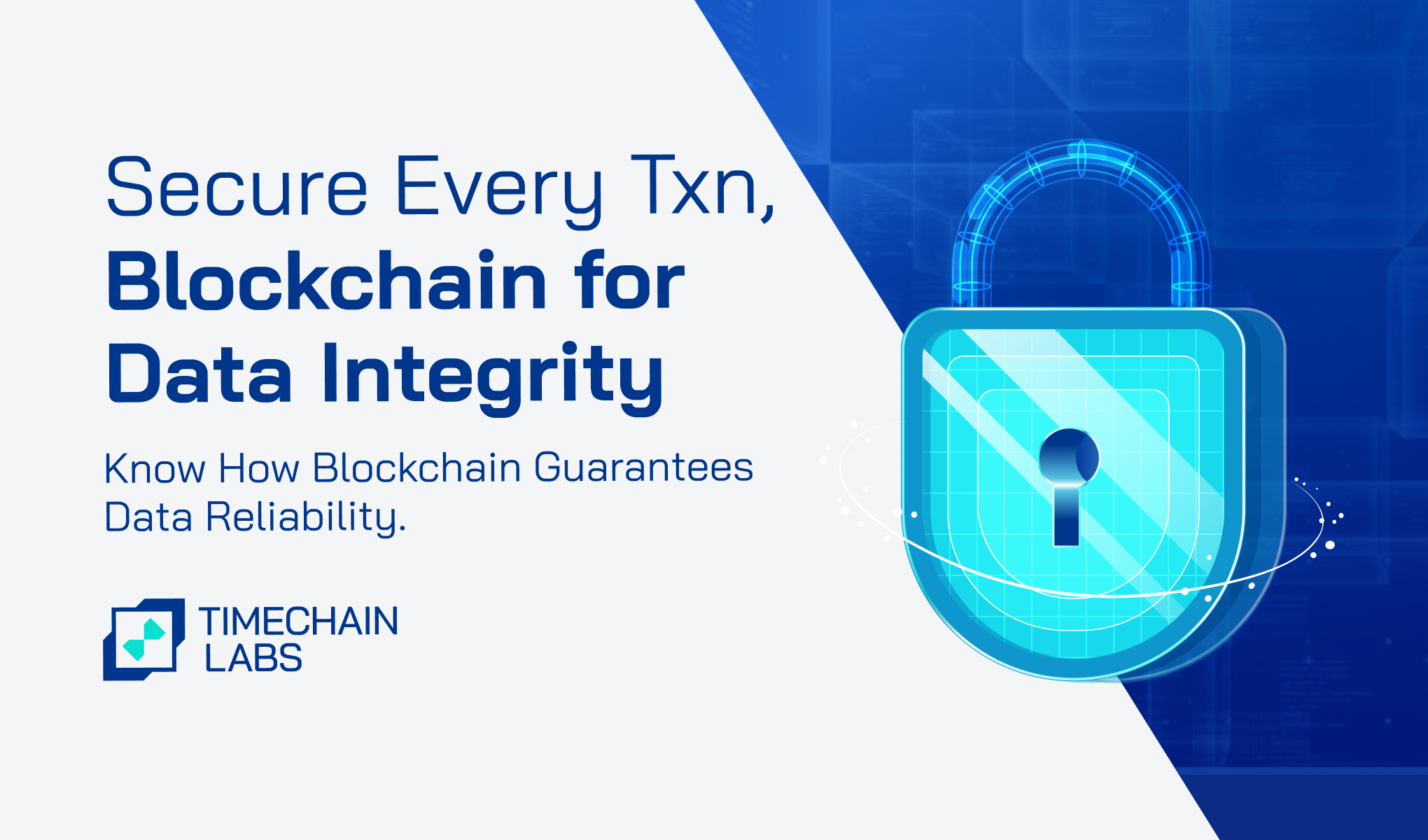In today's data-driven world, maintaining the integrity and security of information is critical. From financial transactions to medical records and supply chain management, businesses and organizations must retain trust in data validity and dependability. Enter blockchain technology, a breakthrough tool that provides a reliable answer to the age-old challenge of data integrity.
Blockchain, the underlying technology that powers cryptocurrencies such as Bitcoin and Ethereum, has emerged as a major changer in the field of data management. Blockchain is fundamentally a decentralized and distributed ledger system for recording transactions over a network of computers. What distinguishes blockchain is its immutability; once data is stored on the blockchain, it becomes nearly tamper-proof, offering a dependable means for assuring data consistency. So, how can enterprises use blockchain to protect their data integrity ?
Blockchain's immutable ledger is important to maintaining data integrity. Unlike traditional databases, which allow data to be edited or removed, blockchain keeps an immutable record of transactions. Each new block in the chain includes a cryptographic hash of the previous block, resulting in a secure and tamper-proof sequence of data. Organizations may limit the risk of unintended changes or manipulation by storing critical data on a blockchain. Blockchain provides a secure store for financial records, intellectual property, and sensitive customer information, ensuring data integrity.
It uses digital signatures to authenticate and approve transactions, alongside an immutable record. Each network member holds a unique cryptographic key pair, consisting of a public key for verification and a private key for transaction signing. When data is uploaded to the blockchain, it is cryptographically signed with the sender's private key, guaranteeing that only authorized parties may change or add information. This cryptographic authentication provides an additional degree of protection and trust, enhancing the integrity of the data recorded on the blockchain.
This architecture emphasizes decentralization and consensus. Instead of depending on a central authority to handle and validate transactions, blockchain works as a peer-to-peer network, with each node keeping a copy of the ledger. This decentralization eliminates a single point of failure and lowers the danger of data modification by hostile parties. Furthermore, blockchain uses consensus processes to reach an agreement among network users on the authenticity of transactions. Blockchain guarantees that all parties agree on the state of the ledger, whether through proof-of-work, proof-of-stake, or other consensus techniques, hence improving data integrity.
- Smart Contracts: These self-executing contracts, written in code, provide an additional way to ensure data integrity on the blockchain. These programmable contracts automatically enforce established norms and conditions, removing the need for middlemen and lowering the risk of fraud or disputes. Smart contracts enable enterprises to automate procedures and transactions while ensuring openness and responsibility. Smart contracts, whether used to facilitate payments, authenticate identification, or enforce compliance, provide a safe and efficient foundation for maintaining data integrity.
Blockchain's transparency enables real-time auditing, allowing stakeholders to follow data movement and verify validity. Every blockchain transaction is chronologically and immutably recorded, creating a public audit trail that authorized parties may view and verify. Transparency not only builds trust and responsibility, but it also functions as an effective tool for regulatory compliance and risk management. Whether in banking, healthcare, or supply chain management, blockchain's auditable ledger guarantees data integrity requirements are fulfilled and upheld.
To summarize, using blockchain for data integrity presents a compelling answer to the issues of safeguarding and authenticating information in an increasingly digital environment. Organizations may protect their data from manipulation, fraud, and illegal access by using blockchain's immutable ledger, digital signatures, decentralization, smart contracts, and transparency. As we continue to embrace the possibilities of blockchain technology, the hunt for data integrity expands, paving the way for a future in which trust is more than just an ideal, but an essential component of our digital infrastructure.
